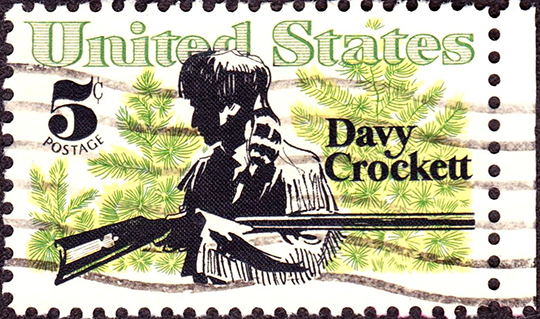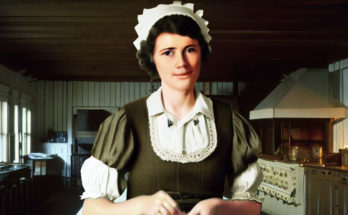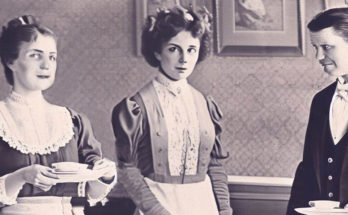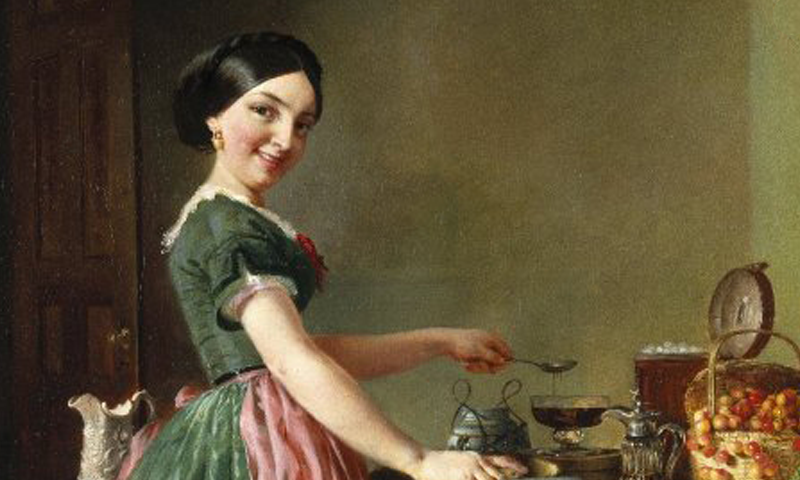
…As the army marched, I hunted every day, and would kill every hawk, bird, and squirrel that I could find. Others did the same; and it was a rule with us, that when we stop’d at night, the hunters would throw all they killed in a pile, and then we would make a general division among all the men. One evening I came in, having killed nothing that day. I had a very sick man in my mess, and I wanted something for him to eat, even if I starved myself. So I went to the fire of a Captain Cowen, who commanded my company after the promotion of Major Russell, and informed him that I was on the hunt of something for a sick man to eat. I knowed the captain was as bad off as the rest of us, but I found him broiling a turkey’s gizzard. He said he had divided the turkey out among the sick, that Major Smiley had killed it, and that nothing else had been killed that day. I immediately went to Smiley’s fire, where I found him broiling another gizzard. I told him, that it was the first turkey I had ever seen have two gizzards. But so it was, I got nothing for my sick man. And now seeing that every fellow must shift for himself, I determined that in the morning, I would come up missing; so I took my mess and cut out to go ahead of the army. We know’d that nothing more could happen to us if we went than if we staid, for it looked like it was to be starvation any way; we therefore determined to go on the old saying, root hog or die. We passed two camps, at which our men, that had gone on before us, had killed Indians. At one they had killed nine, and at the other three. About daylight we came to a small river, which I thought was the Scamby; but we continued on for three days, killing little or nothing to eat; till, at last, we all began to get nearly ready to give up the ghost, and lie down and die; for we had no prospect of provision, and we knew we couldn’t go much further without it.
We came to a large prairie, that was about six miles across it, and in this I saw a trail which I knowed was made by bear, deer, and turkeys. We went on through it till we came to a large creek, and the low grounds were all set over with wild rye, looking as green as a wheat field. We here made a halt, unsaddled our horses, and turned them loose to graze.
One of my companions, a Mr. Vanzant, and myself, then went up the low grounds to hunt. We had gone some distance, finding nothing; when at last, I found a squirrel; which I shot, but he got into a hole in the tree. The game was small, but necessity is not very particular; so I thought I must have him, and I climbed that tree thirty feet high, without a limb, and pulled him out of his hole. I shouldn’t relate such small matters, only to show what lengths a hungry man will go to, to get something to eat. I soon killed two other squirrels, and fired at a large hawk. At this a large gang of turkeys rose from the cane brake, and flew across the creek to where my friend was, who had just before crossed it. He soon fired on a large gobler, and I heard it fall. By this time my gun was loaded again, and I saw one sitting on my side of the creek, which had flew over when he fired; so I blazed away, and down I brought him. I gathered him up, and a fine turkey he was. I now began to think we had struck a breeze of luck, and almost forgot our past sufferings, in the prospect of once more having something to eat. I raised the shout, and my comrade came to me, and we went on to our camp with the game we had killed. While we were gone, two of our mess had been out, and each of them had found a bee tree. We turned into cooking some of our game, but we had neither salt nor bread. Just at this moment, on looking down the creek, we saw our men, who had gone on before us for provisions, coming to us. They came up, and measured out to each man a cupfull of flower. With this, we thickened our soup, when our turkey was cooked, and our friends took dinner with us, and then went on.[120]
We now took our tomahawks, and went and cut our bee-trees, out of which we got a fine chance of honey; though we had been starving so long that we feared to eat much at a time, till, like the Irish by hanging, we got used to it again. We rested that night without moving our camp; and the next morning myself and Vanzant again turned out to hunt. We had not gone far, before I wounded a fine buck very badly; and while pursuing him, I was walking on a large tree that had fallen down, when from the top of it, a large bear broke out and ran off. I had no dogs, and I was sorry enough for it; for of all the hunting I ever did, I have always delighted most in bear hunting. Soon after this, I killed a large buck; and we had just gotten him to camp, when our poor starved army came up. They told us, that to lessen their sufferings as much as possible, Captain William Russell had had his horse led up to be shot for them to eat, just at the moment that they saw our men returning, who had carried on the flour.
We were now about fourteen miles from Fort Decatur, and we gave away all our meat, and honey, and went on with the rest of the army. When we got there, they could give us only one ration of meat, but not a mouthful of bread. I immediately got a canoe, and taking my gun, crossed over the river, and went to the Big Warrior’s town. I had a large hat, and I offered an Indian a silver dollar for my hat full of corn. He told me that his corn was all “shuestea,” which in English means, it was all gone. But he showed me where an Indian lived, who, he said, had corn. I went to him, and made the same offer. He could talk a little broken English, and said to me, “You got any powder? You got bullet?” I told him I had. He then said, “Me swap my corn, for powder and bullet.” I took out about ten bullets, and showed him; and he proposed to give me a hat full of corn for them. I took him up, mighty quick. I then offered to give him ten charges of powder for another hat full of corn. To this he agreed very willingly. So I took off my hunting-shirt, and tied up my corn; and though it had cost me very little of my powder and lead, yet I wouldn’t have taken fifty silver dollars for it. I returned to the camp, and the next morning we started for the Hickory Ground, which was thirty miles off. It was here that General Jackson met the Indians, and made peace with the body of the nation.
We got nothing to eat at this place, and we had yet to go forty-nine miles, over a rough and wilderness country, to Fort Williams. Parched corn,* and but little even of that, was our daily subsistence. When we reached Fort Williams, we got one ration of pork and one of flour, which was our only hope until we could reach Fort Strother.
The horses were now giving out, and I remember to have seen thirteen good horses left in one day, the saddles and bridles being thrown away. It was thirty-nine miles to Fort Strother, and we had to pass directly by Fort Talladego, where we first had the big Indian battle with the eleven hundred painted warriors. We went through the old battle ground, and it looked like a great gourd patch; the sculls of the Indians who were killed still lay scattered all about, and many of their frames were still perfect, as the bones had not separated. But about five miles before we got to this battle ground, I struck a trail, which I followed until it led me to one of their towns. Here I swap’d some more of my powder and bullets for a little corn….
— from NARRATIVE of the Life of David Crockett, of the State of Tennessee.
*Parched Corn. In a pan over the fire, toast dried corn kernels until they are puffed up and golden brown.


